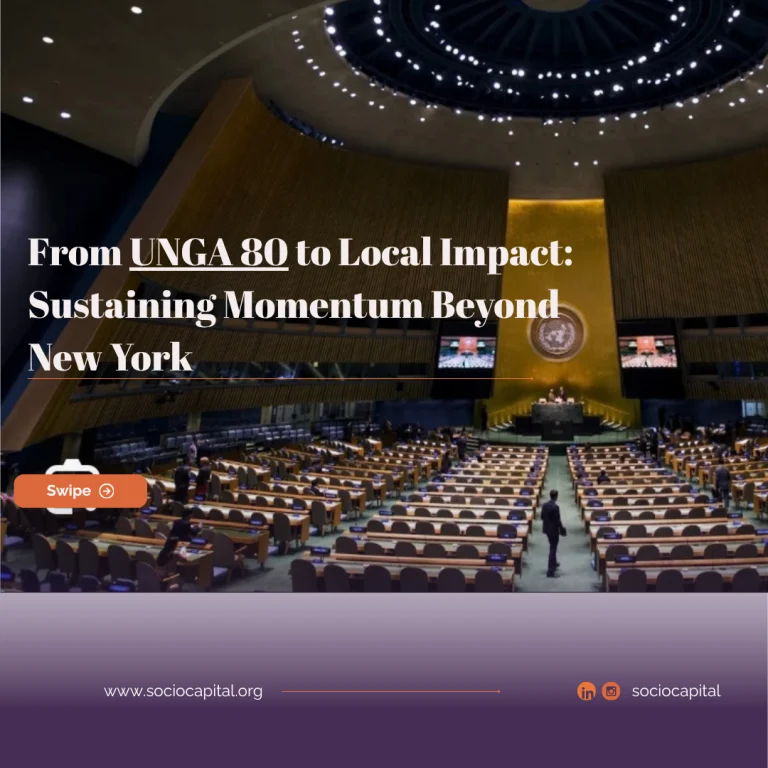From UNGA 80 to Local Impact: Sustaining Momentum Beyond New York
The global stage of the United Nations General Assembly (UNGA) often shines bright with declarations of hope, promises of reform, and commitments to shared action. UNGA 80 was no exception. Leaders, large and small, spoke with urgency about justice, accountability, and the need for systems that deliver. But the question that always follows is this: […]
From UNGA 80 to Local Impact: Sustaining Momentum Beyond New York Read More »



